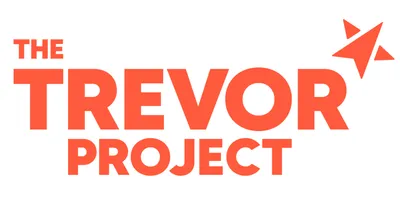Crisis support

What is a mental health crisis?
A mental health crisis is a situation in which a person’s emotions and behaviors put them at risk of hurting themselves and others, prevent them from self-care or disallow them from functioning within a community.
Causes vary by person, but common triggers are:
- Life stressors: These include situations in everyday life such as relationship issues, family conflict, the death of a loved one, losing a job, or stress at school or work that becomes too intense to handle.
- Feelings of isolation or misunderstanding: This may include feeling singled out, hopeless, and like there’s nowhere to turn for support.
- Trauma: If someone experiences a harmful event or something triggers a response to past trauma, they may feel unable to deal with their reaction.
- Medical diagnoses: Sometimes we have strong reactions to new medical diagnoses or can have chronic health issues that feel neverending (such as chronic pain).
- Complications from one or more mental health conditions: If conditions are left untreated, symptoms worsen. This may be compounded by challenges with medication such as starting a new medication, experiencing intense side effects from medication, or stopping medication altogether without slowly tapering dosage over time. This can lead someone to have difficulty functioning.
- Substance use: Alcohol and drug use are common contributors to crises because they can complicate symptoms of one or more mental health conditions. They can also interfere with medications.
Experiencing mental health crises can be life-threatening, but help is available. By learning more about possible warning signs and how to get support, you can take steps to prevent and recover from crises for yourself and your loved ones.
How do I know if someone is going through a mental health crisis?
While there aren’t always warning signs, there are some behaviors that can be signs of a crisis.
- Suicidal intent: Having serious thoughts of suicide or taking steps to plan it
- Abusive or aggressive behavior: Self-harm, verbal threats or violent behavior
- Inability to function normally: Being unable to get out of bed, keep up with basic hygiene (such as changing clothes or brushing teeth) or complete daily tasks
- Withdrawal: Missing work or events, not wanting to leave home, or isolating from family and friends
- Losing touch with reality: Seeing or hearing things that aren’t there, confusing strange ideas or fears, not recognizing friends or family, paranoia, or not understanding what others say
What’s considered a crisis can be different from person to person, but if you see or experience a sudden shift from typical behavior, it usually means something is wrong.
How should I deal with a mental health crisis?
It can feel scary to recognize that you or a loved one is facing a mental health crisis, but there are proven ways to address these situations safely and with compassion. Help is available.
For myself
In the moment of worsening mental health symptoms, you might feel unsure of what to do, which can make things worse.
Know that you can always seek help and do not have to manage a mental health crisis alone. If you do take steps on your own, here are some tips:
- Assess the situation. First and foremost, assess your safety. If you’re having suicidal thoughts, planning to harm yourself, or are thinking of harming others, that’s an emergency. Go to your local ER or call 988. Alcohol or drug use and disorienting symptoms such as hallucinations also need the immediate and serious intervention that a hospital can provide.
- Get outside support. If you’re in crisis or are unsure if you are, a good first step can be calling a crisis hotline or finding an online crisis support chat. They can help you understand what to do next even if you can’t contact your normal doctor or therapist and can help support you in the moment.
- Reach out to someone you trust. Reach out to a trusted friend or family member and let them know what you’re going through—they can stay with you to help assess the situation, keep you safe and find support. You can also contact your healthcare provider or therapist to let them know what’s happening and get advice, though depending on the time of day that might not be the quickest option.
- Take steps to calm yourself, if you can. Though you’re likely experiencing a lot of emotions, try to step away from a physical space that may be stressful or where you’re exposed to harmful objects. Try to breathe deeply in and out, focusing on your breath.
For someone else
It’s normal to feel overwhelmed if a loved one is in crisis, but your help can make a difference and help them know they are not alone.
- Assess the situation. Figure out how severe and urgent the crisis is. You may not want to take a loved one to a hospital and feel you can manage things on your own. However, if someone is at risk of hurting themselves or others (including you), or are unable to care for themself, you need outside expertise and should call for help.
- Reduce risk of danger. Create a safe space by placing items that could cause harm out of reach from your loved one. Put yourself in a safe position to prevent violence toward you and to prevent them from feeling trapped. Try to keep stimulation levels low, and avoid touching the person unless you ask them first. Consider announcing all actions before initiating them.
- Stay calm and de-escalate. Try to de-escalate the situation by remaining calm and empathetic. Speak with a soft, patient tone. Try to listen to the person, expressing support and concern, and asking how to help. Do not argue or make judgmental comments–this will only escalate the situation.
- Get outside assistance. If someone in a crisis isn’t able to communicate their needs, isn’t receptive to de-escalation, or the situation is already severe, get outside help. Call 911 or an emergency resource to get professional, immediate crisis intervention help. You can also call 988 or text a crisis support line as the family member or loved one, and not only the person experiencing the crisis.
How can I prevent and prepare for a mental health crisis in the future?
There are steps you can take to prevent a situation from escalating and to be prepared if a crisis does occur.
- Track your mental health symptoms and notice changes. Though it can be hard to notice worsening symptoms in yourself, regularly tracking your sleep, eating, mood and daily functioning can help you notice any important changes.
- Adopt a healthy lifestyle. Focus on sleeping and eating well, getting physical activity, and taking time to destress to help relieve symptoms. This will help to improve your overall health and develop healthy coping skills.
- Explore therapy. Working with a therapist can offer new ways to manage symptoms and find longer-term relief.
- Talk to others. Regularly check in with at least one person you trust and tell them how you’re feeling. If someone is struggling, offer reassurance. If you’re experiencing challenges, try to open up about it. If friends and family aren’t an option, “warmlines” ( hotline services that address non-emergency situations, both general and specific) can be a good way to talk to someone who cares.
- Develop a mental health crisis plan. Figure out the action steps and resources you’ll use if you find yourself or someone else in a crisis. Crisis plans often start with coping skills, include phone numbers of friends and others in your support system, and also incorporate contact information for your doctors and support hotlines. You might also consider legal documents like a psychiatric advance directive (PAD) that outlines care preferences for severe situations. Keep these documents somewhere you’ll remember and that’s easily within reach. (Pinning it to your refrigerator is one idea.) Learn more about developing a mental health crisis plan from the National Alliance for Mental Illness (NAMI).
Recommended resources
- Helpline | Text lineAgriStress Helpline
- Helpline | Text line | Online Live ChatTREVOR line | The Trevor Project
- HelplineVeterans Crisis Line

